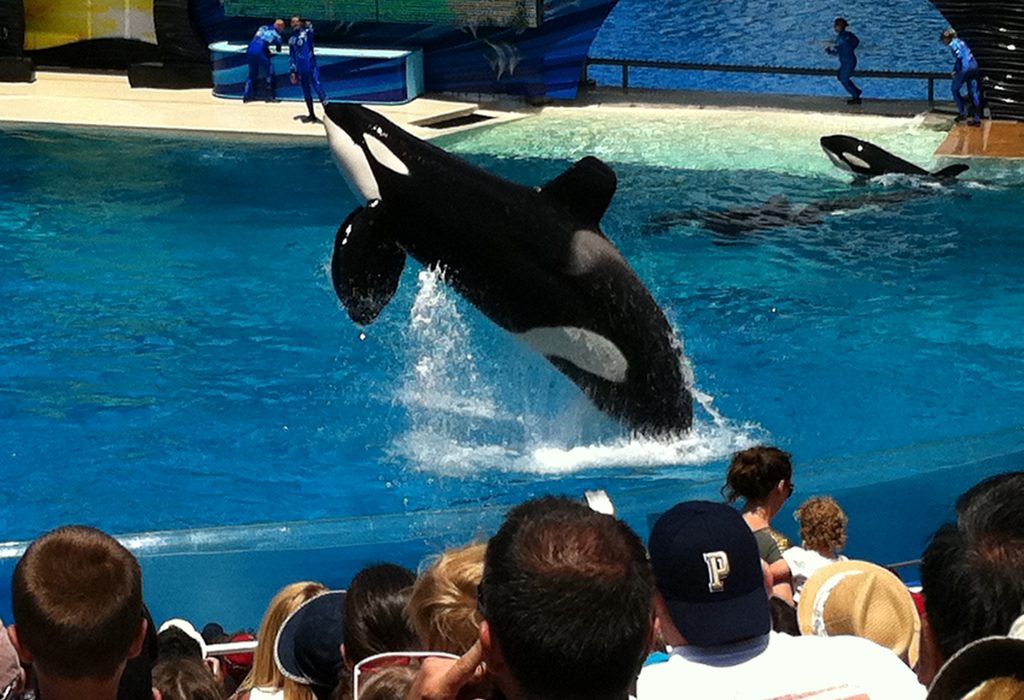
You might also like:
Nearly two months ago, SeaWorld Entertainment made what its CEO called “a fundamentally game-changing announcement” by declaring an end to its famed, oft-criticized theatrical killer whale shows and orca breeding program.
When it comes to the company’s finances, which have suffered multiple blows since the release of the critical documentary “Blackfish” in 2013, the game hasn’t changed just yet.
SeaWorld reported first-quarter earnings on Thursday that showed some positive movement: Attendance crept up from 3.21 million in the first three months of last year to 3.3 million this year, in part because Easter fell during the first quarter. Revenues increased nearly 3 percent to more than $220 million.
But the company posted an $84 million net loss for the quarter, greater than last year’s $43.6 million loss. Shares closed at $18.49, down 5 percent, Thursday.
“We view 2016 as a transitional year,” said chief financial officer Peter Crage. “We are taking the necessary steps to return the company to consistent financial performance, but we still have challenges to navigate.”
In the near term, those challenges include lower attendance in Orlando, in large part due to plunging visitor numbers from Brazil. The number of season pass holders also dropped in Orlando after the company did away with a buy-one-get-one-free deal, alienating price-sensitive customers.
SeaWorld Entertainment includes 11 parks, including SeaWorld, Busch Gardens, and Aquatica water parks. The company was valued at $2.5 billion when it went public in April of 2013.
“Blackfish,” the documentary that explored the treatment of SeaWorld’s killer whales and the death of a trainer who was killed by one of the orcas, was released later that year. The company initially tried to dismiss the film as activist propaganda, but was forced to take the controversy seriously as attendance fell, businesses ended partnerships with the parks, and share prices tumbled. On Thursday, SeaWorld Entertainment’s market cap was $1.64 billion.
The former CEO left the company in January of 2015; Manby started in April of that year and eventually made changes to top management. But the biggest shakeup came in March of this year, when the company announced that it was ending the practice of breeding orcas in captivity and changing the performances to more natural exhibitions.
Manby said reactions to the decision have been overwhelmingly positive, and survey have shown that intent to visit the parks has grown.
“The evolution of the SeaWorld brand will not happen overnight, but we have taken the most important and significant first steps,” he said Thursday.
As the company moves away from the killer whale shows that made it famous, it hopes to drive visits with other new offerings. In Texas, the dolphin-centric attraction Discovery Point will open later this year, as will new roller coasters in SeaWorld Orlando and Busch Gardens in Tampa.
“We’re very confident that we are turning the corner in this company,” Manby said.
Source: skift.com
